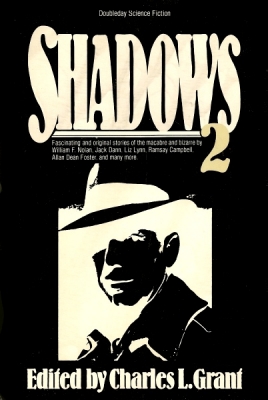The Golden Age of Science Fiction: “Mackintosh Willy,” by Ramsey Campbell

The World Fantasy Awards are presented during the World Fantasy Convention and are selected by a mix of nominations from members of the convention and a panel of judges. The awards were established in 1975 and presented at the 1st World Fantasy Convention in Providence, Rhode Island. Traditionally, the awards took the form of a bust of H.P. Lovecraft sculpted by Gahan Wilson, however in recent years the trophy became controversial in light of Lovecraft’s more problematic beliefs and has been replaced with a sculpture of a tree. The Short Fiction Award (sometimes called short story award) has been part of the award since its founding, when it was won by Robert Aickman for “Pages from a Young Girl’s Journal.” In 1980, the year Campbell received the award for the story “Mackintosh Willy,” the convention was held in Baltimore, Maryland. Campbell tied for the award with Elizabeth A. Lynn for the story “The Woman Who Loved the Moon.”
Ramsey Campbell’s story “Mackintosh Willy” was initially published in the Charles L. Grant anthology Shadows 2. It is the story of a young boy who is finding his way in the world and even the familiar can have a sinister feel to it. In this case, the homeless man who appears to live in one of the shelters in the park near where he lives causes caution in all the children in the area, although it is not clear that the man is doing anything to gain the reputation he has.
When Campbell’s narrator realizes Willy has died, he tells his parents who shrug him off and send him to the police. The police discover that since his death, Willy’s body has been defiled. Although suspicion briefly falls on the narrator, the police quickly decide he isn’t the guilty party. Campbell hints that the desecration was carried out by the narrator’s friend, Mark, although it is a hint that is dropped and ignored.
The narrator carries on with his life, but Willy’s metaphorical ghost continues to intrude on it, resulting in a failure in one of his first relationships with a girl. At the same time, the narrator is wrestling with his own growing sexual desires, not entire sure how to contain himself. Even as the narrator continues to be haunted by Willy, so too is Mark, although they two boys never talk about their experiences.
Looking back at “Mackintosh Willy” from a distance of forty years since its publication, the story seems like a pedestrian horror story. It may differ in the specifics of other stories about the scary, yet familiar stranger, but the overall arc of the story is as familiar, and creepy, as Mackintosh Willy is to Campbell’s narrator and the other boys he runs with.
While Campbell and Lynn tied, the other three nominees were Fritz Leiber’s Fantasy Award winning “The Button Molder,” T.E.D. Klein’s “Petey,” and William F. Nolan’s “Saturday’s Shadow.”
 Steven H Silver is a sixteen-time Hugo Award nominee and was the publisher of the Hugo-nominated fanzine Argentus as well as the editor and publisher of ISFiC Press for 8 years. He has also edited books for DAW, NESFA Press, and ZNB. He began publishing short fiction in 2008 and his most recently published story is “Webinar: Web Sites” in The Tangled Web. His most recent anthology, Alternate Peace was published in June. Steven has chaired the first Midwest Construction, Windycon three times, and the SFWA Nebula Conference 6 times, as well as serving as the Event Coordinator for SFWA. He was programming chair for Chicon 2000 and Vice Chair of Chicon 7.
Steven H Silver is a sixteen-time Hugo Award nominee and was the publisher of the Hugo-nominated fanzine Argentus as well as the editor and publisher of ISFiC Press for 8 years. He has also edited books for DAW, NESFA Press, and ZNB. He began publishing short fiction in 2008 and his most recently published story is “Webinar: Web Sites” in The Tangled Web. His most recent anthology, Alternate Peace was published in June. Steven has chaired the first Midwest Construction, Windycon three times, and the SFWA Nebula Conference 6 times, as well as serving as the Event Coordinator for SFWA. He was programming chair for Chicon 2000 and Vice Chair of Chicon 7.
Cool look back…but why tag the series The Golden Age of SF, when this and not a few other entries have nothing much to do with sf?
When I started the series at the beginning of the year, all of the posts included this introductory statement to explain: